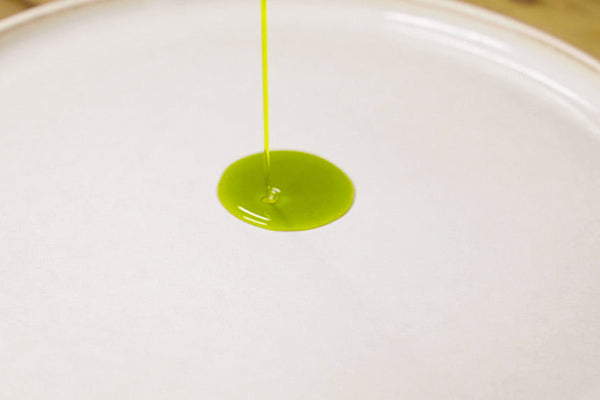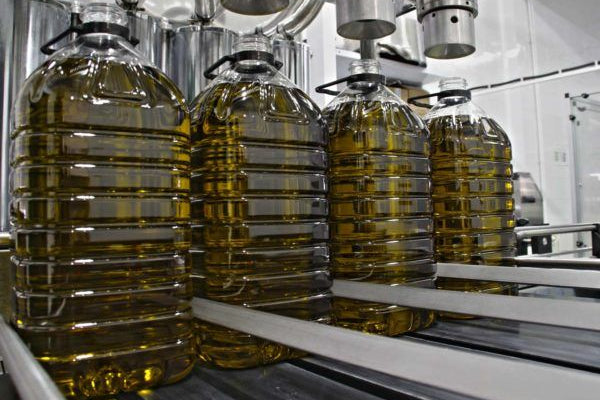Article: Benefits of olive oil

Benefits of olive oil
Olive oil is much more than a vegetable fat. It is a nutritional jewel, a star ingredient of the Mediterranean diet, and a product deeply rooted in Spanish culinary culture. For centuries, it has been valued not only for its unmistakable flavor but also for its multiple health benefits.
As the science of nutrition advances, more and more studies support what our grandmothers already knew: extra virgin olive oil is an extraordinarily healthy food. In this article, we clearly and rigorously explain its main benefits and why you should include it daily in your diet.
1. Heart ally
One of the best-known benefits of olive oil is its protective effect on the cardiovascular system. Its high content of oleic acid, a monounsaturated fat, helps reduce LDL cholesterol levels (known as “bad cholesterol”) without affecting or even increasing HDL cholesterol levels (the “good” cholesterol).
Additionally, the polyphenols present in extra virgin olive oil have antioxidant properties that help prevent cholesterol oxidation and keep arteries in good condition. That is why it is no coincidence that populations consuming large amounts of olive oil have lower rates of coronary diseases.
2. Anti-inflammatory properties
The phenolic compounds in olive oil, such as oleocanthal, have a natural anti-inflammatory effect. In fact, studies have shown that oleocanthal acts similarly to ibuprofen, but without its side effects. This makes extra virgin olive oil an excellent ally against chronic inflammatory processes, such as those behind diseases like arthritis, metabolic syndrome, or even certain types of cancer.
3. Protection against cellular aging
Cellular aging is related to the action of free radicals, unstable molecules that damage cells. The natural antioxidants present in olive oil – such as vitamin E, polyphenols, and squalenes – neutralize these free radicals and protect our cells from oxidative stress.
This not only helps slow biological aging but can also play an important role in preventing degenerative diseases such as Alzheimer’s or Parkinson’s.
4. Improvement of digestion and intestinal health
Olive oil facilitates digestion, stimulates bile production, and improves intestinal transit. Consumed regularly, it helps prevent constipation naturally and supports the proper functioning of the digestive system.
It has also been observed that olive oil can have a prebiotic effect, meaning it promotes the growth of beneficial bacteria in the gut, which contributes to microbiota balance and strengthens the immune system.
5. Blood sugar control
Various studies have shown that consuming olive oil can improve insulin sensitivity and help maintain stable blood glucose levels. This is especially relevant for people with type 2 diabetes or at risk of developing this disease.
Additionally, olive oil helps reduce the glycemic response of meals, which means it prevents sharp spikes in blood sugar after eating. This not only improves metabolic health but also helps control appetite and avoid hunger peaks.
6. Benefits for skin and hair
Olive oil not only works from within but can also be an excellent natural cosmetic. Its high content of vitamin E, squalene, and fatty acids makes it an effective moisturizer that deeply nourishes the skin, fights dryness, and improves skin elasticity.
Applied to hair, it adds shine, softness, and helps combat scalp dryness. It is no coincidence that many natural cosmetic brands include olive oil as a star ingredient in their formulations.
7. Aid in weight loss (when used wisely)
Although it is a fat and provides calories, olive oil can be a great ally in maintaining a healthy weight. Unlike other less healthy fats, olive oil provides satiety, improves diet quality, and can help reduce overall food intake when used in moderation.
Moreover, diets rich in olive oil—such as the Mediterranean diet—have proven effective not only for weight loss but also for long-term maintenance without the need for extreme restrictions.
8. Culinary versatility with nutritional value
Beyond its health properties, extra virgin olive oil stands out for its flavor, aroma, and versatility in the kitchen. It is perfect for dressing, cooking, frying, baking, or even finishing dishes just before serving. And the best part: retains its properties even when moderately heated, thanks to its excellent thermal stability.
While other oils degrade quickly with heat, producing harmful compounds, extra virgin olive oil better preserves its nutritional characteristics, making it a safer and healthier option.
9. Prevention of chronic diseases
Regular consumption of extra virgin olive oil has been linked to a lower incidence of various chronic diseases: from cardiovascular diseases to certain types of cancer, including neurodegenerative and metabolic disorders.
The combination of healthy fats, antioxidants, and bioactive compounds makes olive oil a functional food, that is, a product that goes beyond nourishment: prevents and protects.
Conclusion
Extra virgin olive oil is not just a healthy fat; it is a true nutritional treasure. It adds flavor, protects the body, cares for the heart, strengthens the immune system, and improves quality of life. Incorporating it into your daily diet is one of the simplest and most effective decisions you can make to take care of yourself and your loved ones.
At Olivarte.es We offer you a carefully selected range of high-quality extra virgin olive oils, crafted with care, respect for tradition, and a commitment to health. Because we believe every drop counts. And because eating well is also living better.




Leave a comment
This site is protected by hCaptcha and the hCaptcha Privacy Policy and Terms of Service apply.